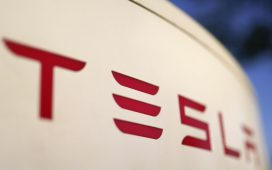US opposition to South Korean chipmaker SK Hynix’s plans to upgrade a plant in China threatens the company’s competitiveness, underscoring the challenge for a sector caught up in growing tech rivalry between Washington and Beijing.
SK Hynix, the world’s second-largest memory chipmaker, wants to modify its Wuxi factory in eastern China, where it makes about 40 per cent of its Dram memory chips, which enable short-term storage for graphic, mobile and server chips.
The company wants to install extreme ultraviolet lithography, or EUV, chipmaking machines, the next-generation equipment made by Dutch company ASML. Analysts said that the EUV machines must be installed within the next three years for SK Hynix to keep up with other global chipmakers, such as Samsung Electronics and Micron Technology, in the race to boost productivity and cut costs.
S Paul Choi, founder of Seoul-based political risk advisory StratWays Group, said US efforts to secure access to essential technologies while denying their transfer to China was stoking anxiety in South Korea.
A US demand in September for semiconductor companies to submit detailed information about chip supply and demand, inventory and different customer segments was of particular concern, he said.
“The US is worried about technology being transferred to China, but many Koreans are equally worried about their technology being transferred to the US,” said Choi. “The Koreans don’t want to be strong-armed by the Chinese but they don’t want to be strong-armed by the Americans either.”
The US has stepped up its campaign to limit technology transfer to China. The Biden administration on Wednesday put a dozen Chinese groups involved in quantum computing and other advanced technologies on an export blacklist.
Katherine Tai, the US trade representative, told Korean radio this week that the issue is “highly sensitive” and “there are legitimate concerns about the risks to national security in terms of where this technology ends up”. Analysts said the US could block ASML’s sale of EUV machines to China because the equipment involves US technology.
US president Joe Biden has been looking for ways to make it harder for China to obtain advanced technology, particularly for semiconductors, in an effort to slow down Beijing’s military modernisation efforts.
In addition to talks with South Korea, Washington has discussed with the Dutch government whether ASML, the world’s most advanced manufacturer of chipmaking equipment, should be allowed to sell its cutting-edge EUV technology to a Chinese chipmaker.
SK Hynix has tried to assuage US security concerns by saying it does not have an immediate plan to introduce EUV machines to its Wuxi plant and is at an early stage of producing Dram chips using the next-generation equipment at its Korean plant.
Lee Seok-hee, SK Hynix chief executive, told reporters on Monday that his company would respond to the US concerns “wisely while co-operating with interested parties”.
A Korean industry official cautioned that SK Hynix’s competitors such as Samsung could face similar problems when they tried to introduce other cutting-edge equipment to their Chinese plants, although Samsung did not need EUV machines in its chipmaking plant in China.
As it works to curb cutting-edge technology from being transferred to China, the Biden administration has been pushing foreign chipmakers to increase production in the US. On Wednesday, Samsung announced it was building a $17bn high end chip plant in Taylor City, Texas.








